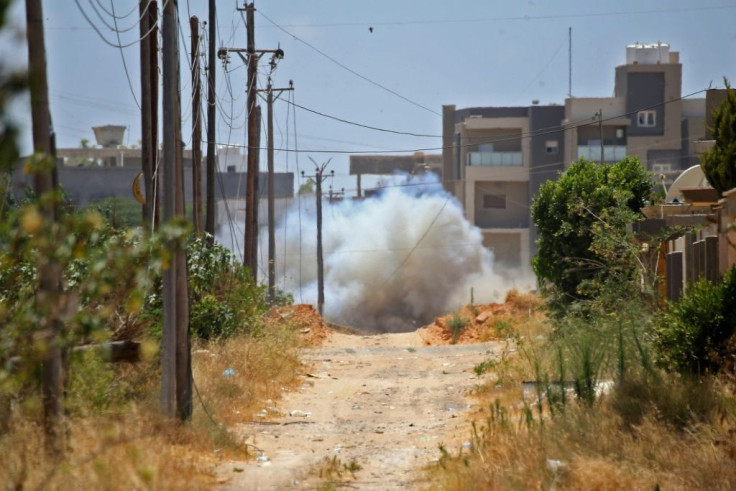Dead Bodies Of Alleged Russian Mercenaries Litter Battlefield After Encounter With Ukraine Army: Report

KEY POINTS
- Dead fighters carrying patches associated with Russia's Wagner Group were found near Bakhmut, Ukraine
- The paramilitary organization is allegedly funded and controlled by Russian oligarch Yevgeny Prigozhin through a network of front companies
- Members of the Wagner Group are "just another sort of cannon fodder," according to Russian military expert Pavel Luzin
Russian mercenaries may have been among the Russian forces Ukrainian soldiers encountered in the occupied Ukraine region of Donetsk.
In the aftermath of fighting near the Ukrainian city of Bakhmut, Ukrainian troops discovered the bodies of soldiers who appeared to be members of the Wagner Group, a mercenary paramilitary organization allegedly founded by Russian special forces officer Dmitry Utkin, U.S. government-funded news outlet Radio Free Europe/Radio Liberty (RFE/RL) reported.
While the dead had the same uniforms and rifles as regular Russian soldiers, their uniforms allegedly bore "green armbands with Arab signs" as well as Grim Reaper patches with the slogan, "I don't believe in anything. I'm here for violence," which are calling cards for the Wagner Group, according to Ukrainian soldiers.
"We came to the battlefield and saw their patches with the Grim Reaper. It was clear it was a [Wagner] unit," one soldier told RFE/RL in an interview.
"They are known to have a slogan: 'I don't believe in anything. I'm here for violence.' Regular [Russian] troops don't wear patches like that," another Ukrainian soldier told the outlet.
The Wagner Group is allegedly funded and controlled by Russian oligarch Yevgeny Prigozhin through a network of front companies, and it has represented the interests of Russia and its allies across Africa and the Middle East, according to Al Jazeera.
The organization first appeared during the annexation of Ukraine's Crimean Peninsula back in 2014, and it allegedly also took part in Syria's ongoing civil war on the side of Syrian President Bashar al-Assad.
Members of the Wagner Group are neither elite forces nor well-trained commandos, but are instead "just another sort of cannon fodder," according to Russian military expert Pavel Luzin.
"They are after money. And they die for money. We haven't seen any advanced tactics from them," a Ukrainian soldier told RFE/RL.
Journalists in Kyrgyzstan have claimed that the Wagner Group is offering Uzbek and Kyrgyz recruits a monthly salary of 240,000 rubles ($3,960) and a quick route to Russian citizenship.
Russian conscripts, which make up around a fourth of all Russian soldiers, are paid 3,000 rubles per month ($50), according to a report by the Financial Post.
Russia may be hiding its losses in the invasion of Ukraine by hiring mercenary outfits such as the Wagner Group.
"There is no other way for [Russia] but to hire criminals and use them indiscreetly as cannon fodder. They are not required to be efficient. They just need manpower to press forward," a Ukrainian soldier claimed, according to RFE/RL.
Russia's last official casualty figures from the war in Ukraine, which was provided by the country's Ministry of Defense in late March, said fatalities at the time numbered 1,351.
Independent Russian media outlet Mediazona claimed it has been able to confirm the deaths of 5,507 soldiers in the conflict as of Friday.

© Copyright IBTimes 2025. All rights reserved.





















